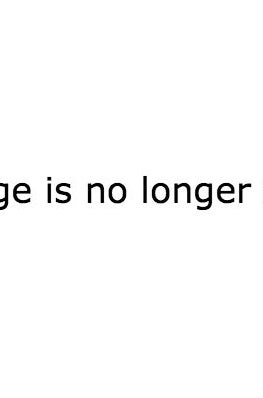1. Sylvia Rivera

Sylvia Rivera was integral to transgender civil rights, but until recently she was all but erased from history. She was a loud voice for the most marginalized — trans people of color and those with low incomes, and it's been said that she was the first bottle-thrower at the Stonewall Rebellion. In 1970, Rivera and Marsha P. Johnson cofounded STAR (Street Transvestite Action Revolutionaries), a radical group that picketed, protested, and connected queens on the street with food and shelter. She died in 2002 but lives on as the namesake of today's vibrant Sylvia Rivera Law Project.
2. Marsha P. Johnson

Marsha P. Johnson (the P stood for "pay it no mind") was a "drag mother" to many, and a mentor to Rivera, with whom she cofounded STAR. Like Rivera, she's also been mentioned as a veteran of the Stonewall Riots, and she was deeply concerned with street kids. She was a model for Andy Warhol, the subject of the documentary Pay It No Mind, and the band Antony and the Johnsons is named in homage to her.
3. Christine Jorgensen

Christine Jorgensen was an ex-GI who became a cover girl and celebrity in 1952 as the first trans woman to receive hormone therapy (in addition to surgery) — which the media christened the first "sex change." She embraced the attention and made classy use of the platform to draw visibility to trans folks as well as to work as an actress, singer (her nightclub act famously featured "I Enjoy Being a Girl"), and entertainer. She died in 1989, and The New York Times wrote her obituary.
4. Billy Tipton

Billy Tipton hit it big as a jazz musician and band leader in the '40s and '50s, and then a stint in the house band at Tin Pan Alley. Things went downhill for Billy, sadly, and he died in poverty. His son only learned he had female anatomy on his deathbed in 1989 — the revelation of which caused a distasteful tabloid stir — but also introduced mainstream America to a passing trans man.
5. Candy Darling and Holly Woodlawn


Holly Woodlawn and Candy Darling were Warhol "superstars" and costarred in Paul Morrissey's 1971 film Women in Revolt. The trans women enjoyed a level of hipness, if not notoriety. Candy Darling was a muse to The Velvet Underground, and acted alongside Jane Fonda and Sophia Loren. She died of lymphoma at 29. Holly Woodlawn achieved less success but was featured in Billy's Hollywood Screen Kiss and is often interviewed regarding the influence of Andy Warhol.
6. Lou Sullivan

Lou Sullivan founded FTM International, the first female-to-male-only organization, in 1986, and is considered a driving force behind the modern understanding that sexuality and gender identity are two different dimensions. He was a gay trans man who advocated for trans men in general, and was crucial in "proving" the existence of gay men in particular. He died of AIDS in 1991 at 39.
7. Jamison Green

Jamison Green, author of the seminal 2004 trans memoir Becoming a Visible Man, took over FTM International when Lou Sullivan died and carried on his vision. He spearheaded the passage of San Francisco's Transgender Protection Ordinance in the '90s and is now a policy expert and speaker on transgender issues.
8. Renée Richards

Renée Richards was a pro tennis player who began her transition in 1975. She was then banned from the 1976 U.S. Open, which created a "woman born woman" policy to justify the exclusion of trans athletes. She sued, and the New York Supreme Court ultimately ruled in her favor, a huge step in trans rights. She played from 1977–1981 and went on to become a coach.
9. Lee Brewster

Lee Brewster founded the Queens Liberation Front in 1970 with Bunny Eisenhower, which was instrumental in getting cross-dressing decriminalized in New York. Brewster also ran the New York drag emporium Mardi Gras, published the political magazine Drag throughout the '70s, and organized drag balls. He died in 2000 at 57.
10. Sandy Stone

Sandy Stone is an artist and new media professor who was targeted by Janice Raymond in her infamously transphobic 1979 book, The Transsexual Empire. In response, Stone wrote the crucial 1987 essay, "The Empire Strikes Back: A Posttranssexual Manifesto," which encouraged trans people to come out and encouraged transgender scholarship. It has since been cited as the origin of transgender studies.
11. Riki Wilchins

Riki Wilchins founded the first transgender activist organization, GenderPAC, in 1995, and then went on to cofound the Transsexual Menace and Camp Trans (an educational protest to the Michigan Womyn's Music Festival's "women born women" policy), and compiled and published the first national survey of violence against trans people. Though she's taken heat for recent Advocate op-eds, her early work changed the way the world viewed transgender people.
12. Loren Cameron

Loren Cameron is a portrait photographer whose 1996 book Body Alchemy documented his transition and the lives of other trans men he knew, bringing visibility to the beauty of trans male bodies.
13. Gwendolyn Ann Smith

Gwendolyn Ann Smith is an activist and writer. She founded the first Transgender Day of Remembrance in 1999 in memory of Rita Hester, who'd been killed the prior November. The memorials are now held internationally every November, and they provide the trans community with a space to grieve the shocking amount of violence still perpetrated against trans people.
14. Miss Major

Miss Major is the executive director of the Transgender, Gender Variant, Intersex Justice Project (TGI Justice Project). She was present at the Stonewall Uprising and has long worked on behalf of low-income, incarcerated trans women of color and their families.
15. Susan Stryker and Paisley Currah


Paisley Currah and Susan Stryker are activists and academics, and together are the founding editors of the just-launched Transgender Studies Quarterly — the first journal of its kind. Currah is a founding board member of the Transgender Law and Policy Institute and chair of the Department of Political Science at Brooklyn College, while Stryker is an associate professor at the University of Arizona and prolific author of work about trans and queer culture, as well as a filmmaker.
16. Kate Bornstein

Kate Bornstein is an author and gender theorist best known for bringing visibility to a genderqueer approach to trans dialogue, highlighted by 1994's Gender Outlaw: On Men, Women, and the Rest of Us and 1998's My Gender Workbook: How to Become a Real Man, a Real Woman, the Real You, or Something Else Entirely, which she's currently updating. She's also an anti-bully advocate, speaker, and performance artist.
17. Jennifer Finney Boylan

Jennifer Finney Boylan is the author of many books, including the memoir She's Not There, which was the first book by an American transgender person to become a best seller. Her recent title about parenting while trans, Stuck in the Middle with You, has gained media attention from the Today show and Brian Williams. She's also an advocate for trans issues, a professor, a New York Times contributor, and a board member of GLAAD.
18. Masen Davis

Masen Davis is the executive director of the 10-year-old Transgender Law Center, which advocates for legal and policy progress to better the lives of trans people. Davis took up his role in 2007 and led the charge that secured last year's crucial federal employment protections for trans and gender-nonconforming people. He's also worked to better trans lives through health-care access in California, where the center is based.
19. Kylar Broadus

Attorney and activist Kylar Broadus was the first trans person to testify before the US Senate last year, in support of the Employment Non-Discrimation Act. Broadus founded the Trans People of Color Coalition in 2010 and was appointed to the Rules Committee for the 2012 Democratic National Convention, making him part of a historic delegation of 13 openly trans candidates in attendance.
Updated: Vandy Beth Glenn was the first person to testify before congress. You can watch her testimony here.
20. Lana Wachowski

Lana Wachowski's entrance into trans advocacy is almost certainly reluctant. The famously private director revealed her trans status last year via a profile in The New Yorker, but her profound and moving speech in acceptance of the Human Rights Campaign Visibility Award was a surprising game changer for trans visibility. With grace, wit, and courage, she told her very personal story without compromise, resisted a connect-the-dots trans narrative, and — when the speech went viral — endeared herself to people the world over.
21. Dean Spade

Dean Spade is an academic, lawyer, writer, and activist. He founded the Sylvia Rivera Law Project, a legal aid and advocacy organization for low-income, trans, and gender-nonconforming people of color. He was named by The Advocate as one of its "Forty under 40" in 2010 and released his first book, Normal Life: Administrative Violence, Critical Trans Politics, and the Limits of Law, in 2011.
22. Janet Mock

Janet Mock was working as a staff editor for People.com when she shared her transition story with Marie Claire in 2011. After that, she left her job at People.com to work as a media activist, speaker, and writer. Her #GirlsLikeUs Twitter campaign galvanized a diverse and large group of trans women online, and she has become a fierce critic of tired media tropes regarding trans bodies. Mock is a national speaker and commentator featured everywhere from NPR to the Melissa Harris-Perry show, advocating for diverse representations of womanhood.
